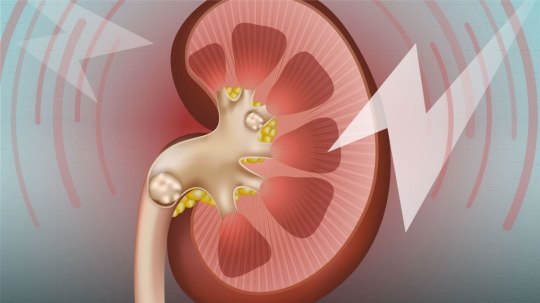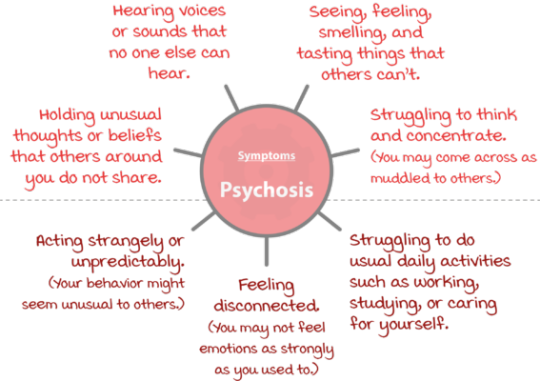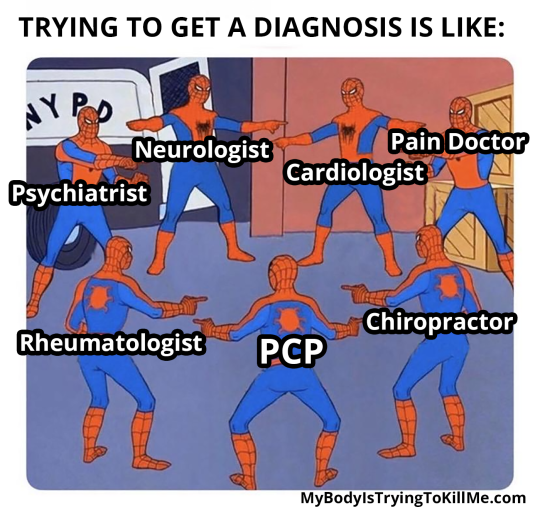#Symptoms And Diagnosis
Explore tagged Tumblr posts
Text
Troubled by Kidney Stones? Here's what to do!
Kidney stones are a common and painful condition that affects many individuals. Formed over time due to the accumulation of waste substances in the body, kidney stones can cause severe discomfort and lead to urinary tract infections. In this article, we will explore the formation of kidney stones, their effects on the body, and the potential remedies offered by Ayurvedic medicine. Section 1:…

View On WordPress
#Fitness#Kidney health#Kidney stone removal#Kidney stone risk factorsTypes of kidney stones#Kidney Stones#Men health#Nephrolithiasis#Pain managementDietary recommendations#Renal calculi#Stone prevention#Symptoms and diagnosis#Treatment options#Urinary system#Urinary tract health#Urology#women health
3 notes
·
View notes
Text
Rare Kidney Disease: An In-Depth Look

There are over a hundred rare diseases that can impact the functioning of the kidneys. Some of the less common renal diseases include Alport syndrome, Medullary cystic kidney disease (MCKD), Autosomal dominant polycystic kidney disease (ADPKD), and Nephronophthisis.
Alport syndrome is a genetic disorder characterized by kidney failure and hearing loss. It is caused by mutations in genes coding for type IV collagen, which is an important component of the glomerular basement membrane in the kidneys. Over time, the glomeruli are damaged, resulting in proteinuria and declining kidney function. Approximately 1 in 5000 individuals are affected by Alport syndrome worldwide.
Medullary cystic Rare Kidney Disease involves the development of cysts in the medulla of the kidneys, which are the inner regions. Two main types are MCKD type 1 and type 2. They are inherited in an autosomal recessive pattern. Cysts accumulate over time, leading to kidney enlargement and eventual failure. MCKD has a prevalence rate of about 1 in 50,000.
Autosomal dominant polycystic kidney disease is one of the most common life-threatening genetic disorders. It is caused by mutations in the PKD1 and PKD2 genes and is inherited in an autosomal dominant pattern. Multiple cysts form in both kidneys, enlarging them considerably. Symptoms include high blood pressure, kidney pain, urinary tract infections, blood in urine and late-stage renal failure. ADPKD has an incidence of about 1 in 1000-4000.
Nephronophthisis is a tubulointerstitial kidney disease leading to end-stage renal failure during childhood or teenage years in most cases. It is inherited as an autosomal recessive or autosomal dominant trait. Tiny cysts form along the renal tubules as the disease progresses. Overall prevalence is estimated to be between 1 in 50,000 to 1 in 100,000.
Diagnosis And Management Challenges
Given the rarity of these disorders, diagnosing them accurately can prove difficult. Initial tests ordered by doctors usually include urine examination, ultrasound of kidneys, serum creatinine levels and creatinine clearance tests. However, definitive diagnosis requires specialist kidney biopsy in many cases to check for characteristic pathology changes under microscopy. Genetic testing is also important to confirm the specific type and mutation involved.
Lack of awareness about Rare Kidney Disease poses challenges in management. Patients often face delays before reaching specialist nephrologists. Limited published research means treatment protocols are still evolving for some conditions. Managing complications like hypertension, pain, infections etc. requires multidisciplinary teams. Coordinating long-term care and follow-up can be an issue as patients transition between pediatric and adult medical services.
Access To Novel Therapies
As understanding of disease pathways improves, new treatments are being developed for Rare Kidney Disease. For instance, antiviral drugs that block JC polyomavirus replication show promise against Nephropathia epidemica (a zoonotic infection causing tubulointerstitial nephritis). CRISPR gene editing is being explored as a curative approach for hereditary conditions. Drugs inhibiting ACE2/angiotensin pathways help slow ADPKD progression. Research is ongoing into stem cell therapy using patient-derived podocytes for Alport syndrome. Management of symptoms also incorporates dietary changes, lifestyle modifications and palliative care approaches. Government approvals have enabled access to orphan drugs for rare disorders in many countries.
The rare diseases impacting the kidneys remain an important public health problem due to their chronic nature and lack of standardized care protocols. Improving awareness, expediting diagnosis, streamlining multi-specialty management, facilitating clinical trials and making innovative therapies more affordable are some priorities. Coordinated global research programs are necessary to find new treatments and eventually cures for these challenging conditions afflicting patients worldwide.
Get more insights on this topic: https://www.trendingwebwire.com/rare-kidney-disease-understanding-the-uncommon-causes-of-kidney-failure/
Author Bio
Vaagisha brings over three years of expertise as a content editor in the market research domain. Originally a creative writer, she discovered her passion for editing, combining her flair for writing with a meticulous eye for detail. Her ability to craft and refine compelling content makes her an invaluable asset in delivering polished and engaging write-ups. (LinkedIn: https://www.linkedin.com/in/vaagisha-singh-8080b91)
*Note: 1. Source: Coherent Market Insights, Public sources, Desk research 2. We have leveraged AI tools to mine information and compile it
0 notes
Text
Understanding Cholecystitis: Causes, Symptoms, and Treatment
Imagine this: You're enjoying your favorite meal when all of a sudden, you're hit with a sharp pain in your upper abdomen that radiates to your right shoulder, making it difficult for you to even sit up straight. You're experiencing cholecystitis!
Imagine this: You’re enjoying your favorite meal when all of a sudden, you’re hit with a sharp pain in your upper abdomen. It’s so intense that it radiates to your right shoulder, making it difficult for you to even sit up straight. You’re experiencing cholecystitis, an inflammation of the gallbladder that can cause severe abdominal pain and other complications. This article aims to provide an…

View On WordPress
#Abdominal Pain#Cholecystectomy#Cholecystitis#digestive health#Gallbladder Inflammation#Gallstones#Health and Wellness#Medical Treatment#Preventive Care#Symptoms and Diagnosis
0 notes
Text
oK so after like?? 3+ years of trying to treat my IBS i just found out i almost DEFINITELY actually have RCPD??? no wonder nothing was working it's not the food it's my FUCKING BODY that's the problem!!!
#ramble#i just found this out completely by accident from a youtuber who has all the same weirdly specific symptoms#idk how to feel?? good that there's a NAME for it but also nobody knows anything about it bc it was only made an actual diagnosis recently#and there's very little treatment and it might not even work#i feel like less of a freak though which is nice
459 notes
·
View notes
Text

girls when their issues get dismissed as anxiety for the millionth time
#futaba sakura#persona 5#p5r#p5#fanart#futabadoodles#chat i am SO losing it#went to get diagnosed w adhd wasnt diagnosed because and i quote “it could be anxiety” omfg#neurotypical psychiatrists especially white ones die in a hole 🥰#also because i “wasnt struggling enough”#like hi so i have this thing called emotional intelligence a good support system and access to coping skills hope that helps!#god forbid a neurodivergent person has tools to manage their condition and isnt in hell everyday i guess!#hate her ass!!!!!!!#i wasnt looking to get diagnosed for medication or support bc i already use a lot of like adhd specific supports and shit#and w accommodations my anxiety diagnosis can cover what i need for the most part so it was rlly just a validation/confirmation thing#like idk yeah. i am managing. im not particularly struggling. because ive been selfdx for a while and have implemented changes in my life#and i happen to be in a very very good place rn and im very lucky. so like. ???#rlly felt like “you have all the symptoms but youre not struggling enough with anything to be able to diagnose ypu” ok thanks fuck you#cuz ppl w adhd can manage being unmedicated by choice i js wasnt officially diagnosed before i guess its deemed “okay” to not live in hell!#dunno im frustrated. i have difficulties but i manage them well and i am very lucky to live an easy life for now so like 😭??
182 notes
·
View notes
Text
Did you kNoW?
Stimulants affect people with ADHD differently because our brains are not processing the naturally produced dopamine as effectively as a neurotypical brain would. The stimulant helps boost us to a 'normal' feeling level.
This is why when a neurotypical person takes ADHD medication they have extreme bursts of productivity and write their thesis in one night or I dunno remodel their house, while an ADHD person might just take them and be like 'Hooray I managed to wash my clothes and hang them up in the same day!'
Jokes on them though, because I can drink coffee at 11pm and sleep right after. Take that society.
#neurodivergence#adult adhd#adhd#neurodiversity#adhd brain#adhd things#neurodiversesquad#executive dysfunction#stimulants#medicated adhd#caffeine#late diagnosis#adhd symptoms#adhd superpower
2K notes
·
View notes
Text
If you’re seeking an autism diagnosis I need you to understand a few things pleeaase hear me out
Not meeting the actual criteria is the only valid reason for them to deem you allistic!!!
just so we’re clear, the actual criteria says nothing about avoiding eye contact, flat affect, flapping hands, or anything along the lines of outwardly seeming “autistic enough” (because it is a neurological condition, in your brain, which is not visible. there is no such thing as looking or seeming autistic because autism doesn’t look or seem any one way, it is extremely different for everyone)
If they cite any of these commonly cited reasons (or anything other than the actual criteria)…RUN. Do not take them seriously. Consult a different clinician. Seek help elsewhere
If you are actually worried about not seeming autistic enough, say something like “I’m high masking and am not able to unmask on command, will the assessment account for this?” when you meet your assessor
If you know you are uncomfortable with confrontation or unable to hold your ground in that kind of situation, look into getting a patient advocate.
Allistic people do not spend time and energy obsessing over whether or or not they’re autistic. They just don’t. So if you really truly think you are and you want a clinical diagnosis, do not give up. Do not take no for an answer. You know yourself better than anyone.
#autism diagnosis#autistic community#autistic trauma#clinical ableism#systemic ableism#late diagnosed autistic#rants & reflections#autism in women#autism in girls#audhd problems#autistic thoughts#adhd autistic#undiagnosed autistic#autistic pride#autistic adult#actually autistic#autism advocacy#high masking autism#autistic masking#autism assessment#anti ableism#autistic traits#autism symptoms#autistic things
66 notes
·
View notes
Text
Btw for anyone who needs to hear it: thinking that people are reading your mind/your thoughts are being heard by everyone is not normal. It's a symptom of psychosis and could be linked to a psychiatric disorder. This, too, goes with hallucinations.
This may seem like a no-brainer, but to teens who don't know what symptoms look like, they may jog it off for a number of reasons. I did, too, when I was in highschool! As a freshman I was having delusions/hallucinations and I didn't tell anyone because I thought they were cringe and weird. I chalked up my hallucinations to me being "tired". People who have psychosis often don't realize that what they're experiencing IS psychosis. This goes the same with other classmates/friends/loved ones. If someone comes to you with concerning behavior (even if they are joking about it) you should take note of it.
In highschool I remember a kid talking about how he could go into the matrix and he had a whole other world to protect/do missions in. He would also go still for long periods of time randomly. I thought he was weird and didn't think much of it, but those are symptoms of schizophrenia (delusions/catatonia).
I would appreciate it if this got a reblog so it could potentially help those recognize these symptoms in either themselves or others!

I wish I could have seen a post like this when I was younger. Then I could have avoided a lot of hardships and would have gotten treatment a lot sooner
#mental health awareness#i know if i saw a post like this on tumblr when i was a teenager it would have helped me out so bad#there are probably a lot of teenagers (and even adults) out there that dont realize what theyre experiencing#then they can get one step closer to a diagnosis and get treatment#it took 7 years for me to even suspect that i had bipolar disorder#i wish i had realized sooner than later that i was experiencing symptoms so i could have avoided a lot of bad experiences#due to episodes
1K notes
·
View notes
Text
me: finally accepting theres a good chance im autistic and starting to work up the courage to ask my parents to see if i could get a diagnoses but being scared to
my mom: do you ever think you have adhd? if you want to do a screening for add next time your at the doctors you can
me:

#for context im terrified of being the person who sees stuff online and diagnosis themselves and then is wrong#which is why it took me so long to accept im —probably— autistic (bc now i have done research and stuff for it)#and id see adhd things that were relatable but i felt i related more to the autism + self diagnosing both felt weird (for me not in general#but now like. my mom is willing to accept i might have add??#(there was a long talk in between her asking if i ever thought i had it and her saying i could get a screening where we both agreed that#—if i did have it— i didnt have the hyperactive part. hence the add vs adhd thing)#and now that kinda through off my plans because like. what if i do also had adhd. or something#so yeah small crisis woo#i need to actually look i to symptoms and stuff for adhd though#because im not saying anything til i know more about it and if i actually do have a lot of the things#but this also gives me a chance go write about the autism things as well bc i told my mom i would look into the adhd#so now i can hopefully find a way to bring that up#ive mentioned that autism is a spectrum recently which i didnt think she knew before#so progress i guess#wow long rant in the tags whoops#jasper’s posts#moots have some jaz lore i guess
153 notes
·
View notes
Text
since autism often involves strict planning and routine whereas adhd often cannot function under such plans and routines, do audhd people have two wolves inside them who are constantly fighting like. "we NEED a plan" and "there will be NO PLAN or there will be NO MOTIVATION"
#i'm autistic and on the strict planning side#so even though this is a joke i'm also genuinely curious how this works#since the symptoms are contradictory yet adhd and autism often go together#autism#its 1 am guys im too tired to articulate it#adhd#audhd#neurodivergence#neurodiversity#neurodivergent#neurodiverse stuff#self diagnosed autism#self diagnosed adhd#self diagnosis
206 notes
·
View notes
Text
why are functional disorders not seen as real? why is the functional part what makes people think it's not real? i'm autistic and struggling to grasp why the word functional means not real to a lot of people. like. it's a functional disorder. it affects functioning. why is that not a big deal? why does that make it not real like other disorders that aren't labeled functional disorders?
also why does it not count as a real disability if it's functional?
edit: there's a really good reply in the reblogs from @ciderjacks if others are wondering this too!
#functional neurological disorder#chronic illness#fnd#i'm genuinely confused people are so negative about the functional label#why. why is that bad in the medical field#i'm genuinely autistically so confused about this i don't get why that makes it a less serious diagnosis#or why people hate the word functional. what makes it such a heated topic / word?#struggling to articulate exactly what my problem is#i was so happy to be diagnosed with it bc it explains my symptoms#why is it not a good diagnosis? why is functional something that makes people think it's not that bad?
125 notes
·
View notes
Text

0 notes
Text
im like that tweet that goes 'i'm probably nonbinary but i have a job so idc' but with my disabilities. i am too busy for a pots diagnosis rn so we ignore all that
#last time i was at the doctors it was brought up as a real possibility and i was told if the symptoms continue i should get tested#and boy they have continued but im trying to let it lie until at least i have a break from school#no thank you... no more diagnosis for me
127 notes
·
View notes
Text

One doctor just throws you to another doctor and it is an endless cycle
#chronicillness#diagnosis#chronicillnesshumor#symptoms#chronicillnessmemes#autoimmune#autoimmunememe#fibromyalgia#spoonie#mecfs
171 notes
·
View notes
Text
this disability pride month i wanna give a shout out to the people who 100% KNOW theyre disabled but have to deal with going through the tedious process of getting a proper official diagnosis. especially if youre just barely on the cusp of not quite meeting the diagnostic criteria so they dont want to diagnose you just yet. the ones who have to monitor their symptoms for months, even years, but the symptoms have melded so much in your daily life that its hard to keep track of whats a symptom and whats 'normal'.
i see you. you are strong. you are not overreacting. you are not faking it. you will get through this. you are not alone.
you are your own best advocate and you deserve to be heard.
#dreamy broadcast#disability pride month#actually disabled#chronic illness#chronically ill#neurodivergent#disabled positivity#im going through this right now. because im just out of bounds for a lupus diagnosis even though i have many symptoms that line up with it#all i know is i definitely have an autoimmune disorder
638 notes
·
View notes
Text
I'm tired of hearing that self diagnosis isn't valid as if so-called medical professionals don't frequently misdiagnose their patients.
As if the industry of psychiatry isn't evil when homosexuality used to be considered a mental disorder and abused slaves were labeled mentally ill for escaping.
As if the DSM actually makes any fucking sense at all being only descriptive of external symptoms that others deal with when dealing with a person with that disorder instead of symptoms that describe how it's actually like to live with that disorder for the person who has it.
As if everyone conveniently ignores that the stigmatization of mental disorders is created by the psychiatric industry and there are mental disorders that therapists refuse to treat or diagnose because of that stigma.
As if everyone forgets that some mental disorders are so stigmatized that having a diagnosis on your record can ruin your life and make you the target of discrimination and abuse by any and every entity who wishes to have power over you by using your disorder against you.
As if the entire population of the world has access to healthcare which is a privilege that only the fortunate and wealthy can afford.
As if the process of formal diagnosis doesn't begin with self diagnosis.
#self diagnosis#self dx#as if acknowledging my symptoms affects you in any way#sorry that you are too privileged to understand any other life than yours but I'm not ruining my life with a formal diagnosis#just cuz you think it's about you
169 notes
·
View notes